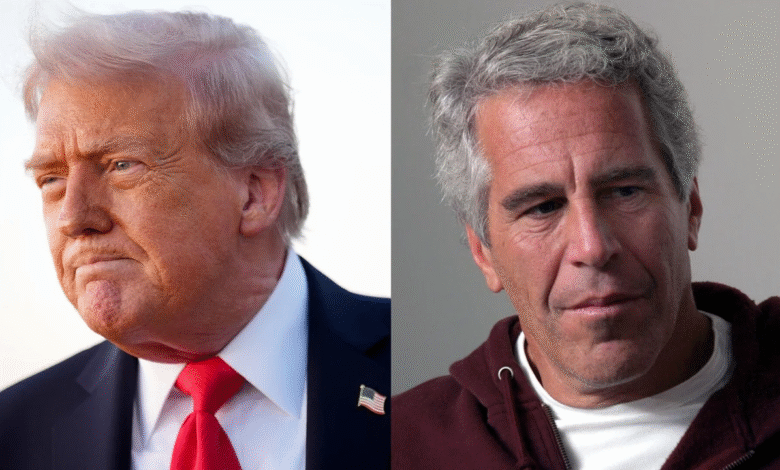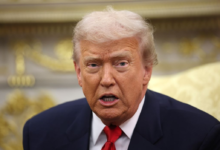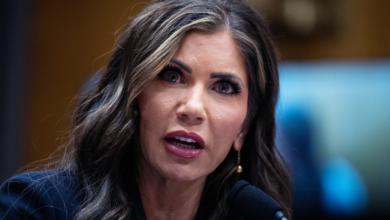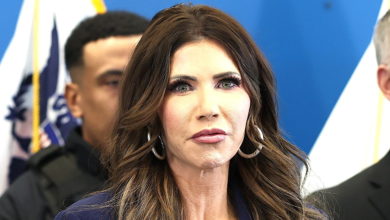JPMorgan Flagged $1B in ‘Suspicious’ Epstein Transactions to Trump Administration — Including Wires to Russia: Report
Internal bank records reportedly show hundreds of flagged transactions tied to Jeffrey Epstein’s accounts—some routed through Russian entities during Trump’s presidency.

Just weeks after Jeffrey Epstein’s death in prison in 2019, JPMorgan Chase secretly alerted the Trump administration to suspicious transactions totaling more than $1 billion. These transactions involved several prominent business figures, offshore accounts, and even wire transfers to Russian banks.
This internal alert, known as a “SAR” was submitted by JPMorgan and is now among hundreds of pages of recently released court documents. The report details more than 4,700 transactions linked to Epstein and his financial network, suggesting potential connections to human trafficking.
Among those named are billionaire Leon Black, co-founder of Apollo Global Management and former president of MoMA; hedge fund manager Glenn Dubin; celebrity lawyer Alan Dershowitz; and trusts associated with retail magnate Leslie Wexner.
Although all these transactions are linked to Epstein’s financial activities, their nature remains unclear, and none of these men have been charged with crimes related to Epstein.
According to The New York Times—which, along with The Wall Street Journal, sought to publish the documents—the JPMorgan report also mentioned wire transfers to Russian banks and highlighted Epstein’s ties to two U.S. presidents. Epstein had personal relationships with Donald Trump and Bill Clinton.
The report provided few details about what had aroused the bank’s suspicions. However, one crucial piece of information emerged: $65 million in wire transfers linked to trusts controlled by Wexner, the billionaire retail magnate who heads The Ltd. and Victoria’s Secret. These transfers, dating back to the mid-2000s, appear to have passed through several banks. Epstein served as Wexner’s trustee and financial advisor for nearly 20 years.
After Epstein’s death, Wexner publicly accused him of misappropriating substantial funds.
The report also detailed financial activities involving Epstein, Leon Black, his wife, and a family company. Previous New York Times articles revealed that Black paid Epstein approximately $170 million over several years, in addition to hundreds of thousands of dollars to at least three women connected to Epstein.
When contacted by The Independent, Black’s team said they had “no comment,” referring to an earlier statement by his lawyer, Susan Estrich:
“Following a thorough investigation conducted more than four years ago, the law firm Dechert concluded that Mr. Black paid Epstein only for tax and estate planning advice, which saved him and his family billions of dollars.
The notion that Epstein exerted any influence over Mr. Black is patently false and absurd.” In reality, it was Mr. Black who fired Epstein because he considered him a troublemaker and deemed his fees excessive. The Dechert report also established that Mr. Black was completely unaware of Epstein’s criminal activities.
Epstein also had close ties to Glenn Dubin. He helped sell Dubin’s hedge fund to JPMorgan Chase—a transaction that earned him $15 million in commission—and had previously been in a relationship with Dubin’s wife, Eva Anderson-Dubin. Epstein was even the godfather of their children.
A spokesperson for the Dubin family told The Independent: “Over those 16 years, there were 12 transactions between the parties, all related to charitable donations, personal gifts, or business dealings. These previously reported transactions have absolutely no connection to the heinous acts that were later revealed concerning Mr. Epstein.” As Glenn and Eva Dubin have already stated, they were horrified to learn of his unspeakable and despicable acts.
Alan Dershowitz, who represented Epstein on his legal team, told The New York Times: “The only money I ever received from Jeffrey Epstein was payment for my legal services, calculated on the basis of my hourly rate.”
JPMorgan Chase is not immune to scrutiny. The bank collaborated with Epstein for over a decade, despite internal warnings and growing concerns among employees. During that same period, Epstein allegedly sexually assaulted more than 200 women and girls, some as young as 14.
A bank spokesperson stated that documents show JPMorgan repeatedly attempted to report Epstein’s actions to regulatory authorities: “It appears that neither the government nor law enforcement acted on these reports for years.”
Since then, the bank has expressed “regret” over its relationship with Epstein, claiming it was unaware of his abuse and criminal behavior.
However, the scale of the scandal and the timing of the warnings—immediately after Epstein’s death—raise troubling questions about what the government knew and when. JPMorgan had sufficient evidence to raise the alarm. The Trump administration had sufficient evidence to investigate. Yet, for years, no one acted.







